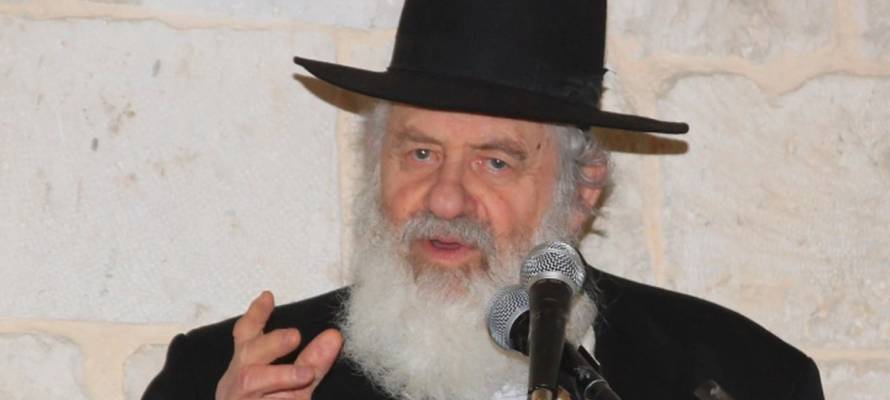Israeli President Isaac Herzog called Zohar a “man of culture and Torah,” one who “made an important contribution to the cultural and spiritual assets of the State of Israel — a contribution that will not be forgotten.”
By Shiryn Ghermezian, The Algemeiner
Uri Zohar, an Israeli filmmaker who wrote, directed and starred in cult films before becoming an ultra-Orthodox rabbi, died on Thursday at the age of 86, Israel’s Ministry of Culture and Sports announced.
A native of Tel Aviv, Zohar was in an army entertainment troupe while serving in the Israel Defense Forces.
He was an icon in Israel’s culture scene in the 1960s and 1970s, with film credits including “Hole in the Moon,” “Three Days and a Child,” “Every Bastard a King,” “Big Eyes” and “Peeping Toms” (“Metzitzim”).
He also made a regular appearance on the Israeli sketch-comedy television show “Lool” (“Coop”) and was awarded the Israel Prize for cinema in 1976, which he declined.
“Three Days and a Child” was based on A.B. Yehoshua’s novel of the same name, and became an Israeli classic. Its star, playwright and actor Oded Kotler, won the award for best actor at the 1967 Cannes Film Festival and the film was also nominated for a Palme d’Or.
After Zohar’s passing, Kotler told Israel’s N12, “My great artistic memory of him is being a director with an extraordinary talent for cinema. He could have skyrocketed in my humble opinion if he had continued, deepened and qualified, but he chose a different path.”
In the late 1970s, Zohar grew more religious, ultimately leaving his life in the arts to become an ultra-Orthodox rabbi in Jerusalem.
Israeli Prime Minister Naftali Bennett eulogized Zohar following his death by calling him “an integral part of Israeliness in all its shades, a rooted and thorny accumulation with a huge spirit world and a beating Jewish heart.” He also said that Zohar “brought hearts together in pleasant ways.”
Israeli President Isaac Herzog called Zohar a “man of culture and Torah,” one who “made an important contribution to the cultural and spiritual assets of the State of Israel — a contribution that will not be forgotten.”
At Zohar’s funeral on Thursday, family members spoke of his dedication to Torah and prayer, and his love of all Jews. One of his sons pledged to keep Zohar’s memory alive, saying, “We are not parting from you, we will try to revive you. Every good deed, every Torah, every prayer, all we have is you — you were my anchor father.”
Zohar is survived by his wife, Eliya Schuster, and seven children.
